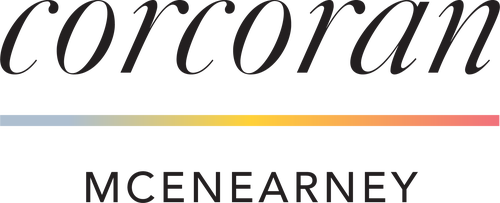The Pros & Cons of Financing and Appraisal Contingencies

In the immortal words of “The Gambler,” you gotta know when to hold ‘em and know when to fold ‘em in the high-stakes world of real estate negotiations.
It’s not always the offered price of a home that catches a seller’s attention; it could also be how quickly a contract can move to the settlement table. Factors like contingencies – addenda that allow a contract to be voided under certain specified conditions – are an important consideration for both buyers and sellers.

For most sellers, the fewer contingencies in an offer, the better. Every contingency comes with deadlines and terms that must be met and there’s potential for a contract to be delayed or derailed if the buyer doesn’t meet those terms. The reality of the current housing market is that many buyers are waiving their contingencies to appeal to a seller, including two of the most popular contingencies: Financing and Appraisal. But what happens when things go sideways and a buyer encounters trouble financing their loan or the home doesn’t appraise for the ratified contract sales price?
Brian Bonnet, SVP & Senior Loan Officer (NMLS ID 224811) for Atlantic Coast Mortgage, recently spoke with many of our Associates to run through different scenarios that buyers may encounter when using or waiving Financing and Appraisal Contingencies. While he noted that most of the contracts Atlantic Coast Mortgage is seeing have been ratified without a Financing or Appraisal contingency, there are situations where a qualified buyer should be hesitant to waive one or both of these contingencies.
What do these Contingencies do?
The Financing and Appraisal contingencies serve to protect a buyer during the real estate transaction. They are included in an offer that requires the buyer to “perform” according to the terms outlined in the contingency or risk defaulting on a ratified contract. If a buyer is not approved by the lender for their proposed financing, the Financing Contingency gives the buyer the option to cancel the contract without penalty (if they cancel within the terms of the appropriate Contingency Addendum). If a property’s appraised value – an amount that is determined by a licensed appraiser on behalf of the lending institution – doesn’t meet the contract sales price, a buyer has the option to void the contract if the seller doesn’t lower the contract sales price to the appraised value or doesn’t meet the lender’s standards required for the condition of the property.
These contingencies are available to conventional, FHA, and VA buyers while the latter two types of transactions may have additional restrictions on how they are used.
When might a Buyer waive the Financing Contingency?
If a buyer is considering waiving the Financing Contingency, beware of the pitfalls. “It is critically important that their financing is rock solid before they choose to remove that contingency,” Bonnet stressed. He recounted a recent experience with a buyer whose long-time work visa had expired and he therefore wasn’t able to continue at his current job until the visa had been renewed. Because the buyer had a Financing Contingency in place, the contract was voided. Had the contingency not been in place, the buyer could have been subject to losing their earnest money deposit (EMD) or other damages should the seller have elected to sue for defaulting on the contract.
When a Financing Contingency is put in motion, the lender will begin a “canceled, withdrawn, or denied” process and an Adverse Action Letter, also called a Rejection Letter, outlining generic terms of why the financing was denied which is then sent immediately to all parties of the contract. This will be followed up by the buyer’s agent with the required paperwork to void the contract, release the buyer from further obligations, and allow the seller to put the property back on the market.
A buyer may elect to waive this contingency if they are certain their employment is secure, are confident that their financial situation won’t change before settlement, or they are putting down a substantial downpayment that reduces the amount of their loan.
When might a Buyer waive the Appraisal Contingency?
An Appraisal is ordered by the lender to verify that a property is worth the amount of money that is being lent to purchase the property. For example, if a home is under contract for $500,000 the lender will want to see an appraisal value of $500,000 or greater. If there is an appraisal gap between the contract sales price and the appraised value, an Appraisal Contingency will spell out what happens next: the seller can agree to lower the sales price to the appraised value; the buyer and seller can renegotiate the sales price and the buyer can add additional cash to their offer to make up the difference; or the buyer can void the contract. In the absence of an Appraisal Contingency, the buyer is obligated to bring additional cash to make up the full difference in the appraisal gap.
A buyer may waive this contingency if they have a good cash reserve and can make up the difference without the cash outlay affecting the lending underwriting. Another scenario might be when a property is in an area where there is potential for value growth. Even if the appraisal comes in low, a buyer may elect to make up the cash difference because they are predicting that a property’s equity may grow quickly.
What can Buyers do?
- Work with a respected, local lender who will advise buyers honestly and clearly on their individual financial risk. Local lenders have a better understanding of regional market dynamics and can speak to factors that can affect the transaction better than most national lenders who don’t have ready access to local information.
- Ensure that when waiving an Appraisal Contingency, the contract specifies that an appraiser will still have access to the property. Many loans may not be approved without an appraisal, regardless of whether a buyer makes the appraisal a contingency to purchase.
- Consider the condition of the home before waiving an Appraisal Contingency. Even if the market value of the home is determined to be adequate, a lender may not approve a property deemed uninhabitable. Bonnet notes that while the “vast majority of homes meet (habitability) standards, you don’t want to be the lone property that doesn’t.”
Overall, Bonnet advises borrowers to go into any real estate transaction with “eyes wide open to make an informed decision.” Enlist a respected, local lender and an experienced McEnearney | Middleburg Real Estate | Atoka Properties Associate to be the team that helps you land your next property!
Don’t miss a post! Get the latest local guides and neighborhood news straight to your inbox!
First-Time Homebuyer Programs to Help Smooth Purchase Challenges

Eric Boutcher, Atlantic Coast Mortgage.
It’s not easy being a buyer right now, but there are important lending and grant programs that give first-time home buyers a head start.
Navigating the intricacies of the real estate market can be daunting for any home buyer. From finding the perfect property to securing the best deal, the journey to homeownership can be filled with challenges. Partnering with the right professionals can make all the difference. Throughout the DMV, there are a number of programs available for first-time home buyers as well as qualified repeat buyers that may provide you with valuable assistance.
Let’s dive into a high-level overview of some programs that may help make ownership more affordable.
DC Open Doors:
DC Open Doors is a program aimed at making homeownership more accessible. It offers 100% financing options via 0% interest, deferred down payment assistance loans, as well as reduced mortgage insurance costs to qualified buyers. The program is open to both first-time and repeat buyers, with income and purchase price limits, and provides educational resources and counseling to help individuals navigate the home-buying process.
DC Tax Abatement Program:
The DC Tax Abatement Program is designed to assist low- to moderate-income individuals and families in Washington, DC, with purchasing a home by providing relief from certain property taxes. Eligible buyers may receive an exemption from paying the recordation tax at closing and an abatement of the real property tax for the first five years of homeownership. To qualify, applicants must meet income and purchase price limits, use the property as their primary residence, and fulfill other criteria. The program aims to make homeownership more accessible and affordable for residents, particularly those with lower incomes, by reducing upfront and ongoing housing costs.
Discounted Recordation Taxes for first time DC Buyers:
First-time purchasers in Washington, DC might be eligible for a significant discount in the recordation taxes paid to the District. For a purchase price below $400,000, both the buyer and the seller typically pay 1.1% in taxes; at or above a $400,000 sales price, both parties typically pay 1.45% in tax. For those individuals purchasing a primary residence in DC, eligible for the homestead deduction, and below certain income limits, the amount of recordation taxes you will have to pay can be capped at .725%. As an example, for the purchase of a $600,000 home in DC, a qualified individual would only have to pay $4,350 in recordation taxes to the city rather than the standard $8,700 – a savings of $4,350!
VHDA:
The Virginia Housing Development Authority (VHDA) is a key resource for individuals seeking to achieve homeownership in Virginia. Recently, VHDA introduced groundbreaking changes aimed at expanding accessibility to their programs, notably eliminating the first-time homebuyer requirement which opens opportunities for a broader range of buyers. Additionally, VHDA offers a 2% grant program, providing financial assistance towards down payments and closing costs, easing the financial burden of purchasing a home. Another noteworthy initiative is the VHDA Plus program, which offers 100% financing, and some buyers may even qualify for an additional 1.5% in funds to be applied toward closing costs. Through the recent guideline changes, VHDA is enhancing affordability and making homeownership dreams more achievable for Virginians.
Maryland Mortgage Program:
The Maryland Mortgage Program (MMP) offers a range of products to assist Maryland residents in achieving their homeownership goals. These include:
- Down Payment Assistance: MMP provides various down payment assistance options, including grants and loans, to help homebuyers cover upfront costs.
- Maryland SmartBuy: Aimed at helping individuals with existing student debt purchase a home, SmartBuy offers assistance with student loan repayment through a home purchase incentive.
- Partner Match: MMP collaborates with local employers, nonprofits, and other organizations to offer additional down payment and closing cost assistance to eligible homebuyers.
- Mortgage Loans: MMP provides fixed-rate and adjustable-rate mortgage loans with competitive interest rates and flexible terms, catering to a variety of financial situations and preferences.
- Flex Loans: These loans offer higher loan-to-value ratios and relaxed underwriting guidelines, making homeownership more attainable for individuals with lower credit scores or limited down payment funds.
Overall, the Maryland Mortgage Program provides a comprehensive suite of products and services designed to make homeownership more accessible and affordable for Maryland residents.
ACM Grant Program for Eligible First-Time Buyers and Community Partners:
Atlantic Coast Mortgage offers a grant program for eligible buyers to help with down payment and closing cost assistance. Eligible first-time home buyers can receive up to a $12,500 grant and community partners – which includes firefighters, first responders, doctors, nurses, law enforcement, educators, and more – may be eligible for a grant of up to $15,000. This program has income limits based on household size but is eligible throughout the DMV and beyond.
Beyond the programs highlighted above, there are conventional loan products offering as little as 3% down, programs that offer reduced interest rates and mortgage insurance costs, and other programs that might be a better fit for your specific needs. Discover why working with the right team of experts who understand how to navigate the market is essential for a smooth and successful home-buying experience.

Eric Boutcher,
VP, Sales Manager, Sr. Loan Officer
NMLS ID: 1063065
Atlantic Coast Mortgage, NMLS: 643114
O: 202-347-0908 | M: 202-870-6343
Email Me
Notice: This is an advertisement and is not a commitment to lend. Contact a loan officer today to explore the financing options specific to each borrower.
Don’t miss a post! Get the latest local guides and neighborhood news straight to your inbox!
There Are More Options To Homeownership Than You Think

There are myriad programs and creative financing options that can pave the way to owning a home if you know who to ask and prepare ahead.
As we prepare for the 2024 spring market, Realtors and their clients are having in-depth discussions about what they can afford and how to secure their financing. But many wannabe buyers are dissuaded from believing homeownership is in the cards because they don’t have a big down payment, need to sell an existing home first, or are retired, among other hurdles. But with guidance from a savvy lender, the doors to homeownership start to open up.
Brian Bonnet and Carey Meushaw of Atlantic Coast Mortgage recently held a class for McEnearney agents to review financing programs and products for buyers eager to purchase but who need a little extra help putting their financing together. They reviewed common buyer challenges and the solutions available through ACM’s lending programs and those offered by housing agencies like Virginia Housing, Maryland’s Community Development Agency, and DC’s Open Doors.
Scenario 1: First-time purchaser with little available cash
Agents shared that many buyers are waiting on the sidelines because of concerns of not having a 20% down payment. In reality, Meushaw explained that there are many lower down payment options, even for conventional loans.
For Fannie Mae and Freddie Mac, who provide guidelines for the vast majority of loans originated nationwide, the minimum down payment is only 3% for first-time homebuyers (which applies even if you’ve owned a home before but not in the last three years) and for higher-priced loans of $766,550-$1,149,825 the minimum down payment is only 5%. There are even lower down payment programs, such as those provided by VH, which are income-dependent programs with 0-3% down payments. VHDA provides both conventional first mortgages up to 97% and grants that can be used toward down payments.
In one example Bonnet shared, a qualified buyer using the Virginia Housing (VH) Plus program could purchase a $300,000 condo with a first mortgage of $291,000 and a second mortgage of $13,500 for total financing of $304,500. That means the buyer can finance $4,500 of the total closing costs, leaving them with a cash requirement of roughly $8,200.
In another example, for a $500,000 townhouse with a first mortgage of $485,000 and a second mortgage of $22,500, the borrower’s cash needed is approximately $7,900. In both scenarios, buyers do need cash funds, but as seen in these examples, the amount required was less than $10,000, much lower than many buyers expect they’ll need.
Scenario 2: Home to sell and can’t compete with a Home Sale Contingency
In a competitive market, a home sale contingency is generally a non-starter for sellers who want “clean” contracts with few or zero contingencies, but agents know that potential seller-buyers want to avoid selling their existing home before they have their next home to move to. Stalemate, right?
Not always, says Bonnet. “I have active customers who thought they couldn’t purchase before first selling because they needed the cash equity from their existing home, and they cannot qualify for the new traditional loan without getting rid of the existing home loan,” he shared as he explained how they worked out a plan using a bridge loan.
There are two types of bridge loans that Atlantic Coast Mortgage offers: a cash-out bridge loan and a purchase bridge loan. In the first, owners can refinance their current home to allow for a line of credit that can be used for a down payment or closing costs on a new home and must be repaid within three months.
“We have qualified them for a bridge loan on their existing home without consideration of their debt service on the next home,” Bonnet explained. With that bridge loan, they convert equity to cash to be used as a down payment on the next $1.1M home.”
Bonnet continued, “Because they don’t qualify for a traditional loan on the next home while carrying the debt on the existing home, we have also qualified them for a bridge loan on the new home without consideration of the debt on the existing home. With this unique Atlantic Coast Mortgage underwriting guideline, the seller-buyers are now able to write a contract that is not contingent on the sale of their existing home, and, if they choose, they can waive financing and appraisal contingencies and be in the hunt as competitive prospective homebuyers.”
Scenario 3: Retirees and self-employed buyers without steady incomes
There are other ways a smart lender can set clients up for success, even without a monthly income. Self-employed buyers will have many deductions that can reduce their net income (on paper), but with the right documentation, lenders can help them add back depreciation, thereby increasing their eligible qualifying income. Meushaw also ran through an example of a retiree who could begin drawing from their qualified retirement account penalty-free at 59 ½ years old. With a $1M retirement fund, the retiree could set up a distribution of $10,000/month that can be counted as immediate income that can be used for qualification purposes.
Both Bonnet and Meushaw agreed that the more information a lender has, the better they can advise buyers, and advise buyers to get in contact with their financing expert as soon as possible. This gives buyers the opportunity to review with their lender which programs they might qualify for and what timelines they will be working under.
Don’t let a challenging market get in the way of your dream of homeownership. Work with an experienced McEnearney | Middleburg Real Estate | Atoka Properties agent and trusted lender to find the options and avenues you didn’t know were possible to get you on your way.
Don’t miss a post! Get the latest local guides and neighborhood news straight to your inbox!

 Facebook
Facebook
 X
X
 Pinterest
Pinterest
 Copy Link
Copy Link





